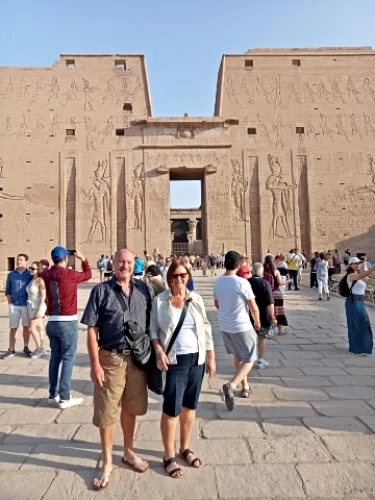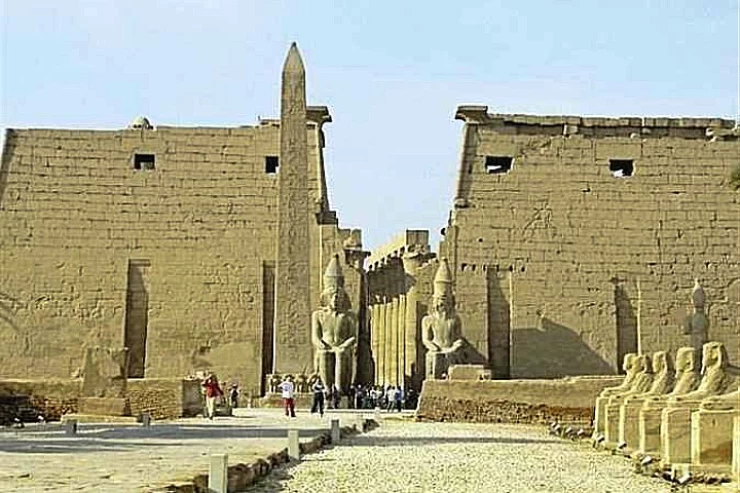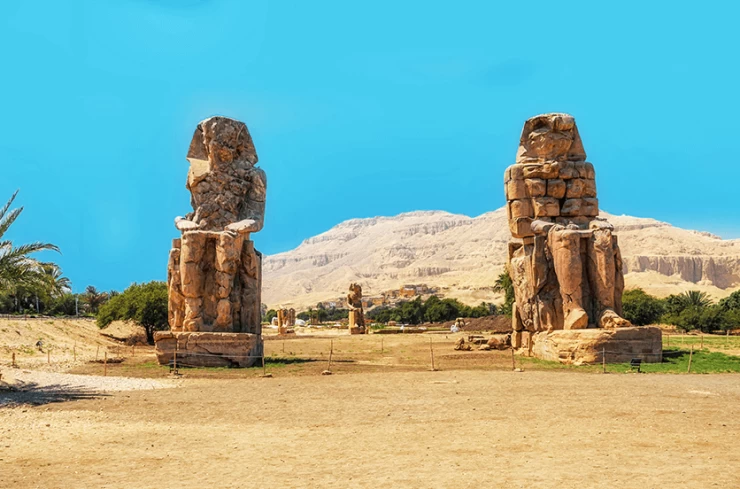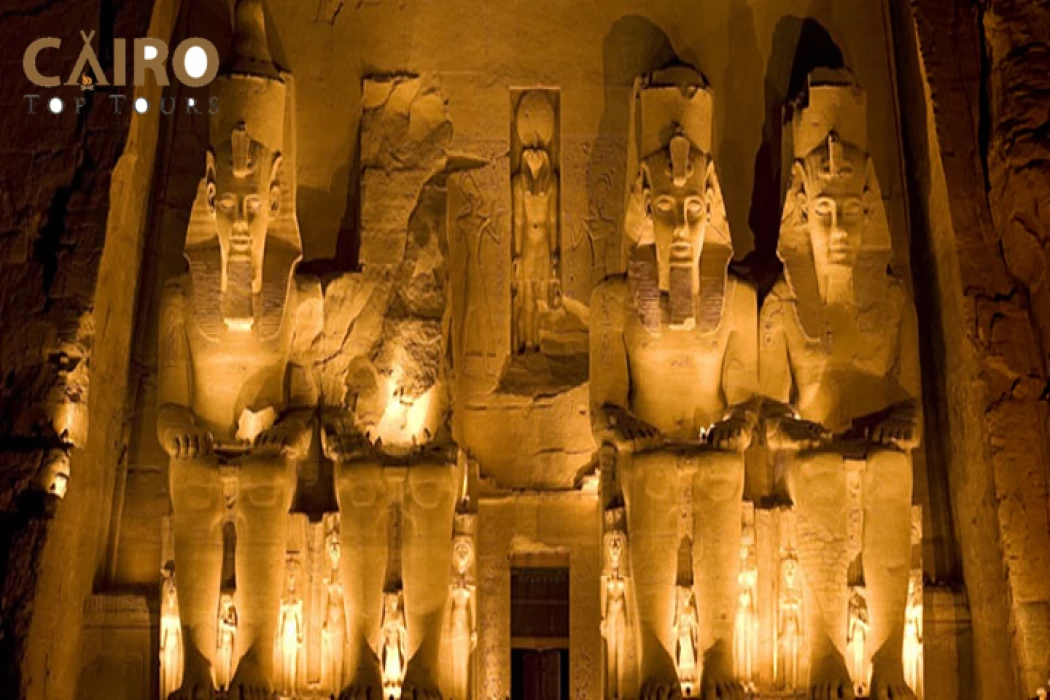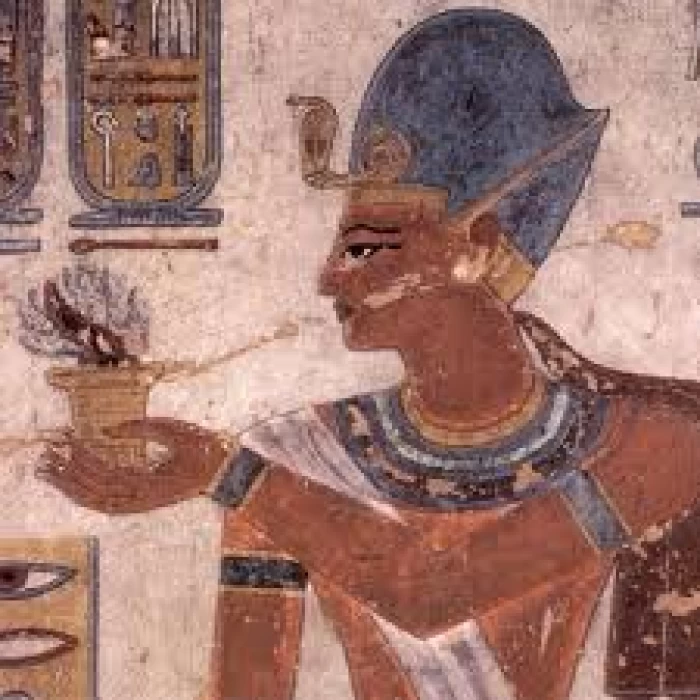Abu Simbel Day Trip from Cairo by Flight
Overview
Get ready for an unforgettable day with Cairo Top Tours as we take you on a journey to the heart of Nubia, in the southernmost part of Egypt, to see the magnificent Abu Simbel Temples, the crown jewel of King Ramses II, which is situated on the shores of Lake Nasser. An extremely old temple that dates back to the ancient Egyptian culture, the Abu Simbel Temple is one of the most well-known structures in Aswan and one of the most significant archaeological sites in Egypt, particularly those from the Pharaonic period, and it is estimated that the temple was built by Ramses II in order to celebrate the victory in the battle of Kadesh with his wife, and the greatest temple serves as a representation of the ancient Egyptian empire's southern boundary with Nubia.
During our tour, you will learn about the history of this ancient temple which was built specifically for King Ramses II, and the construction process lasted about twenty years, and it is considered one of the most beautiful and important temples in Egypt at all, besides being the most beautiful temple built during the reign of King Ramses II, and it was dedicated to the worship of the gods Amun, Ra, Horakhti and Ptah, These statues represent King Ramses II sitting on his throne, while the front of the temple is decorated with hieroglyphic writing commemorating the victory in the battle of Kadesh, and inside the temple includes a large group of rooms dedicated to the king and his family, except for one room called the sanctuary, which is dark every day of the year except only two days.
Get ready for an unforgettable day with Cairo Top Tours as we take you on a journey to the heart of Nubia, in the southernmost part of Egypt, to see the magnificent Abu Simbel Temples, the crown jewel of King Ramses II, which is situated on the shores of Lake Nasser. An extremely old temple that dates back to the ancient Egyptian culture, the Abu Simbel Temple is one of the most well-known structures in Aswan and one of the most significant archaeological sites in Egypt, particularly those from the Pharaonic period, and it is estimated that the temple was built by Ramses II in order to celebrate the victory in the battle of Kadesh with his wife, and the greatest temple serves as a representation of the ancient Egyptian empire's southern boundary with Nubia.
During our tour, you will learn about the history of this ancient temple which was built specifically for King Ramses II, and the construction process lasted about twenty years, and it is considered one of the most beautiful and important temples in Egypt at all, besides being the most beautiful temple built during the reign of King Ramses II, and it was dedicated to the worship of the gods Amun, Ra, Horakhti and Ptah, These statues represent King Ramses II sitting on his throne, while the front of the temple is decorated with hieroglyphic writing commemorating the victory in the battle of Kadesh, and inside the temple includes a large group of rooms dedicated to the king and his family, except for one room called the sanctuary, which is dark every day of the year except only two days.
Inclusion
- Flight tickets from Cairo to Aswan and return.
- Tickets to places of interest on your Egypt tours.
- Air-conditioned private vehicle transportation from Aswan to Abu Simbel and return to Aswan airport.
- English-speaking private Egyptologist guide during your trip.
- Complementary mineral water in the vehicle during the tour.
- Full service and taxes are included in your travels to Egypt.
Exclusion
- Tipping
- Beverages beside Lunch
- Personal Items
Itinerary
We will transport you to the Cairo airport for your flight to Aswan in a modern, private vehicle after picking you up from your accommodation in Cairo or Giza. From there, you will begin your nearly 4-hour drive to Abu Simbel, stopping occasionally for a snack or to use the bathroom.
Today we will have the opportunity to explore a very favorite tourist place for everyone, which is Abu Simbel, In the southern Egyptian province of Aswan, King Ramses II constructed a number of sculptures and two temples as part of an ancient complex on the west bank of the Nile River. The temple is set into a sandstone rock., and these two temples were not known in the world before 1813. in this year, the temple was discovered for the first time by the Swiss researcher Johann Ludwig Burckhardt, and in 1817 was reattempted again by Egyptologist Giovanni Battista Belzoni.
On our tour you will visit the two temples of Abu Simbel. The Great Temple is the most beautiful temple built during the reign of King Ramses II, and was dedicated to the worship of the gods Amun, Ra, Horakhti, and Ptah. The Great Temple is surrounded by four huge statues on its outer facade, and these statues represent King Ramses II sitting on his throne. In honor of his wife, Queen Nefertari, King Ramses II ordered the construction of a small temple dedicated to the worship of the goddess Hathor. The facade of the temple features carvings and inscriptions in the rock, and it is adorned with two sets of statues on either side of the main door.
Lastly, to wrap up your day trip in Abu Simbel, we will transport you back to the airport for your flight back to Cairo at your hotel.
Price
| Number of Persons | Prices |
|---|---|
| 1 Person | $510 Per Person |
| 2 - 3 Persons | $430 Per Person |
| 4 - 6 Persons | $400 Per Person |
| 7 - 10 Persons | $380 Per Person |
Start from : €342
Check Availability
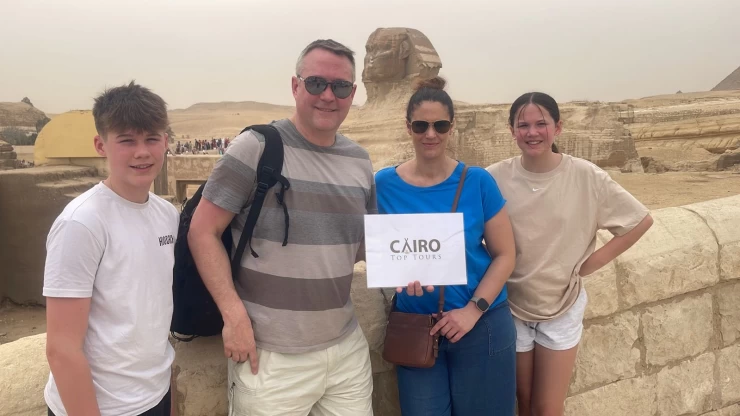
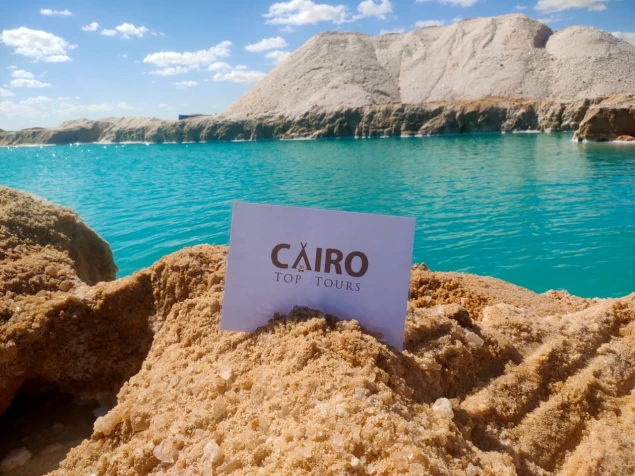
You Also May Like
Looking for something different? check out our related tour now, or simply contact us to tailor made your Egypt tour
Giza Pyramids and Egyptian Museum Trip in Cairo
If you are thinking of visiting Egypt, Cairo is your ideal destination to explore. the deep civilization of Egypt through your visit to the Egyptian Museum and the Pyramids of Giza, where you can see the magical skill of the ancient Egyptians in the art of architecture.
Egyptian Museum, Old Coptic and Islamic Cairo Trip
Discover the historic charm of Old Cairo by exploring the magnificent mosques of Islamic Cairo. Dive into the rich heritage of Coptic Cairo, home to renowned landmarks and churches that once sheltered the Holy Family and feature distinctive icons. Additionally, don’t miss the chance to visit the Egyptian Museum in Cairo, where you can marvel at its remarkable exhibits.
Cairo Day Trip to Giza pyramids, Sakkara and Memphis
See the famous pyramids of Giza and marvel in the magnificence of the Egyptian pharaohs on an amazing tour. During your trip to Cairo, explore the historic Egyptian capital, which is packed with pyramids and tombs, and learn its secrets.
Cairo Stopover Transit Trip
As you explore the lively Khan El Khalili, an open-air marketplace that provides a window into the rich customs and culture of contemporary Egypt, you'll experience a different ambiance. Meet local craftspeople, bargain for one-of-a-kind mementos, and indulge in the flavorful spices and aromas that fill this magical place.
Reviews of the Middle East and Egypt Travel
Positive customer feedback about our cheap tours of Egypt calls for our experts to accompany customers to travel around Egypt, giving history tidbits about every destination the customers visit during their Egypt and Holy Land tours. This can be seen in our foaming social media accounts, Trip Advisor, and YouTube videos. So, enough positive reviews left on Trip Advisor, YouTube videos, and our various social media accounts. About the low-cost tours that customers can enjoy in Egypt with our learned guides, who will accompany them throughout Egypt to teach them regarding each site they visit during tours of Egypt and the Holy Land.
Have no fear Most Egyptians living in Cities have a basic command over the English language and some English words and phrases. However the same cannot be said for French, Italian, Spanish and finally German. Nevertheless, Professionals working in the tourism sector have easily adapted to visitors who don't speak Arabic. Satisfying the needs of most travellers with a combination of English and other lingual phrases.
Visiting Abu Simbel from Cairo on a day tour is possible, but it typically involves a long journey as Abu Simbel is located in the far south of Egypt, near the Sudanese border. The trip would require a domestic flight or a very lengthy drive.
Abu Simbel used to be somewhere else before it became Abu Simbel. It is not only for one god, but for many. People forgot about Abu Simbel for a very long time. A long time ago, people started building it. The temple is designed to face the sun.
Abu Simbel is an iconic archaeological site located in Aswan, Egypt, and it is famous for its monumental rock-cut temples, primarily the Great Temple of Ramses II. The history of Abu Simbel is rich and fascinating, with significant historical events and remarkable engineering achievements. Here's an overview of the history of Abu Simbel:
1. Construction by Ramses II (c. 13th century BCE): The construction of the Abu Simbel temples began during the reign of Pharaoh Ramses II, who ruled Egypt from around 1279 to 1213 BCE during the 19th Dynasty of the New Kingdom. The primary purpose of these temples was to commemorate Ramses II's victory at the Battle of Kadesh and to honor the gods Amun, Ra-Horakhty, and Ptah.
2. Monumental Temples: Abu Simbel consists of two massive temples carved into the sandstone cliffs along the banks of the Nile River.
The Great Temple: The larger of the two temples is dedicated to Ramses II himself, and it features four colossal seated statues of the pharaoh at the entrance. The interior of the temple is adorned with intricate carvings depicting the Battle of Kadesh and religious scenes.
The Small Temple (Temple of Hathor): The smaller temple is dedicated to Nefertari, the chief wife of Ramses II. It features statues of Ramses II and Nefertari, and the interior contains scenes of Nefertari with the goddess Hathor.
3. Relocation in the 1960s: In one of the most remarkable engineering feats of the 20th century, the temples of Abu Simbel were relocated in the 1960s. The construction of the Aswan High Dam threatened to submerge the temples beneath the waters of Lake Nasser. To save these invaluable treasures, an international effort disassembled and moved the temples to higher ground, where they were reconstructed. This preservation effort ensured that Abu Simbel could continue to be appreciated by future generations.
4. UNESCO World Heritage Site: Abu Simbel was designated as a UNESCO World Heritage Site in 1979 in recognition of its cultural significance and the remarkable efforts made to save it from inundation.
Tour operators typically have cancellation policies, so it's essential to understand the terms and conditions before making a reservation.
Abu Simbel is an incredibly significant and iconic site in Egypt, known worldwide for its historical and cultural importance. Here's why it's highly regarded among tourists:
- Ancient Temples: The Abu Simbel temples, built during the reign of Pharaoh Ramses II in the 13th century BCE, are masterpieces of ancient Egyptian architecture.
- Engineering Marvel: The temples were relocated in the 1960s to save them from being submerged by the rising waters of Lake Nasser after the construction of the Aswan High Dam.
- Artistic Significance: The temples boast remarkable artistic and historical significance, showcasing detailed reliefs, statues, and hieroglyphs that depict scenes from ancient Egyptian mythology, battles, religious rituals, and the divine status of the pharaoh.


Cairo Top Tours Partners
Check out our partners


